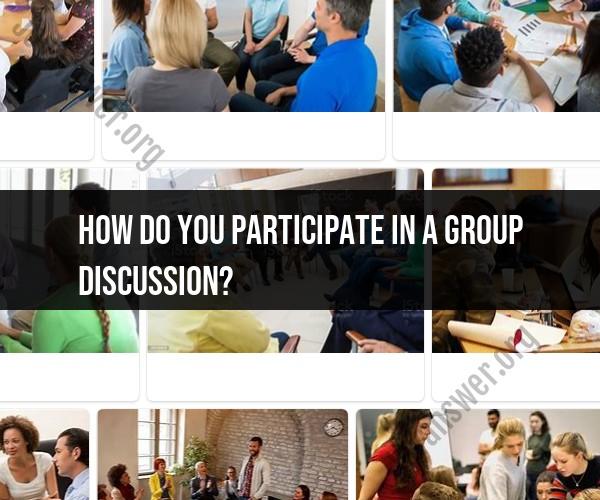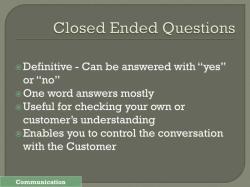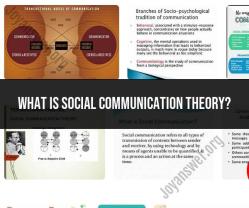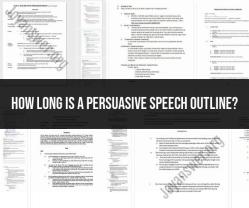How do you participate in a group discussion?
Participating effectively in a group discussion involves both active listening and meaningful contributions. Here are some tips and strategies to help you engage in group discussions more effectively:
Before the Discussion:
Prepare: Familiarize yourself with the discussion topic in advance. Research the subject, gather relevant information, and form your own opinions.
Stay Informed: Be aware of current events and developments related to the topic, especially if it's a timely or news-based discussion.
During the Discussion:
Active Listening:
- Pay close attention to what others are saying. Avoid interrupting and truly listen to their viewpoints.
- Make eye contact with the speaker to show that you're engaged.
Take Notes: Jot down key points, arguments, or questions that you want to address when it's your turn to speak.
Wait Your Turn: Avoid interrupting others when they're speaking. Wait for an appropriate opportunity to share your thoughts.
Body Language: Use positive body language. Maintain an open posture, nod to show agreement or understanding, and avoid crossing your arms, which can signal defensiveness.
When You Speak:
Be Concise: Make your points clearly and succinctly. Avoid going off-topic or rambling.
Support Your Points: Back up your statements with evidence, examples, or personal experiences. This adds credibility to your contributions.
Respect Others: Be respectful of differing opinions, even if you disagree. Use phrases like "I see your point, but..." or "I understand where you're coming from."
Ask Questions: Pose thoughtful questions to stimulate discussion and encourage others to share their perspectives.
Speak Clearly: Enunciate your words and speak at a moderate pace. Avoid speaking too softly or too quickly.
Building on Others' Contributions:
Acknowledge and Build: If someone makes a valid point, acknowledge it before adding your thoughts. For example, "I agree with [Name's] point, and I'd like to add..."
Disagreement: If you disagree with someone, express your viewpoint respectfully and provide reasons for your stance. Avoid personal attacks or confrontations.
Managing Group Dynamics:
Moderator's Role: If there's a moderator, follow their guidance and rules for the discussion. Respect their authority in maintaining order.
Balance Participation: Encourage quieter participants to share their thoughts and prevent dominating voices from monopolizing the discussion.
After the Discussion:
Summarize: If appropriate, summarize the key points of the discussion or your main takeaways. This can help solidify your understanding and contribute to a constructive conclusion.
Follow Up: If the discussion continues outside of the group setting (e.g., in follow-up emails or meetings), be prepared to further contribute or address any outstanding points.
Remember that effective group discussions involve a balance between speaking and listening. Being an active and respectful participant helps create a constructive and collaborative atmosphere, allowing everyone to benefit from diverse perspectives and insights.













